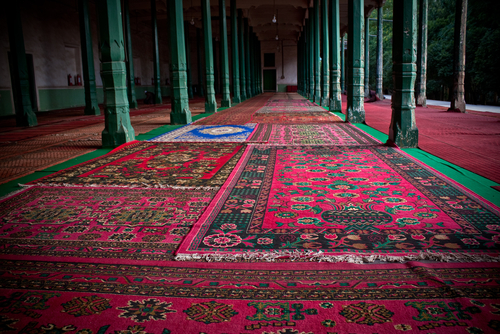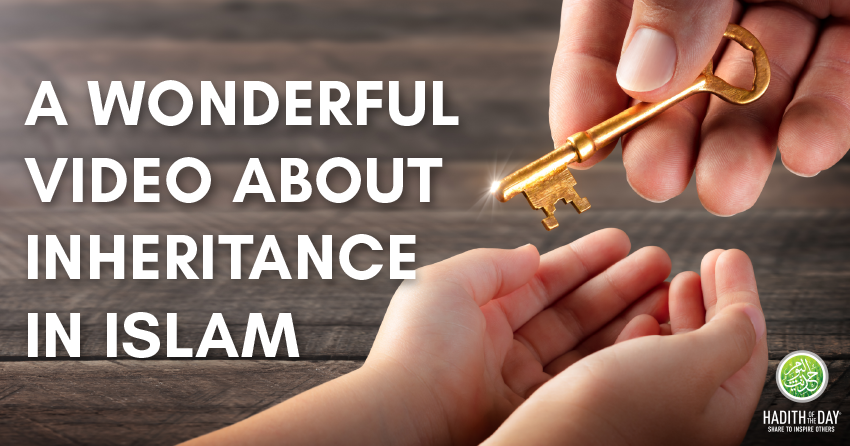Dignity, not Charity

By Louiza Chekhar
One day, a man from Medina approached the Prophet ﷺ (peace and blessings of Allah be upon him) for help, and the Prophet ﷺ asked whether he had any possessions in his house. He asked the man to bring the cloth and bowl which he owned, then sold them to one of his companions for two dirhams. The Prophet ﷺ told the man to spend one dirham on food for his family, and use the other to buy an axe – then he instructed him to “go and gather firewood, I do not want to see you for a fortnight.” By gathering wood and selling it, the man-made ten dirhams, which he used to buy food and clothes for his family – the Prophet ﷺ told him, “This is better for you than that begging should come as a spot on your face on the Day of Judgment.” (Abu Dawud)
Every human being, rich or poor, has a right to the God-given dignity mentioned in the Qur’an:
“We have certainly honored the children of Adam.”
(Qur’an 17:70)
According to some scholars, such as ash-Shawkani and al-Qaradawi, al-‘ird (dignity and honour) is so important that it forms one of the maqasid ash-shari’ah – the higher objectives of the Islamic Way which Islam’s teachings aim to protect.
It is especially important to be conscious of maintaining dignity when giving charity. The word ‘charity’ itself can have negative connotations, leaving recipients feeling helpless and ashamed at having to rely on others. Allah, subhanahu wa ta`ala (exalted is He), gives us careful instruction not to belittle those we give to:
“O you who believe, do not invalidate your charities with reminders or injury.”
(Qur’an 2:264)
In fact, we are told that we are not doing anyone a ‘favour’ by giving; it is a right that the poor have over the wealthy, a duty that we must fulfill – we are
“those in whose wealth there is a known right for the petitioner and the deprived.”
(Qur’an 70:24-25)
We know instinctively that begging is not dignified – just imagine for a moment how humiliating and frustrating it would feel to depend on others day after day for handouts, knowing that you would support yourself if you had the choice? The Prophet ﷺ also spoke of this humiliation:
“Begging is a cut that a person inflicts upon his face, except for asking a ruler, or under the stress of circumstances from which there is no escape.”
(Tirmidhi)
Instead, we are encouraged to work for our sustenance: he ﷺsaid,
“It is better for one of you to take a rope and cut wood, carry it on your back and sell it, rather than to ask another person.”
(Bukhari)
“No-one has ever eaten better food than what he eats from the work done by his hands.”
(Bukhari)
So, if we are believers who “love for [our] brother/sister what we love for [ourselves].” (Bukhari) We should hate to see our fellow human beings stripped of their dignity by poverty, and feel compelled to do all we can to help them escape their situation. Yet in the Muslim charitable sector today, we see countless appeals for handouts that relieve suffering for just a week or two – food parcels, water trucks, orphan sponsorship which must be paid month after month – ultimately keeping communities poor and dependent on charity.
The burden isn’t just on charities, but on Muslim givers too, the community which welcomes these appeals without questioning or critiquing the approach. MashaAllah (what God wills), the generosity of Muslims is unparalleled and commendable: a recent survey in the UK showed that British Muslims give more in charity than any other faith or non-faith community. But just imagine how much good could come from our donations if they were put to better use; in the narration mentioned earlier, the Prophetﷺ managed to use two dirhams to lift an entire family out of poverty!
If we are to truly embody the Prophetic model of charity, a model which restored people’s divine right to honor and dignity when they fell on hard times, there are a few key steps we need to take:
- Understand the essence of Islamic teachings on charity:
When we hear reminders that “the best deeds are feeding the poor.”
(Bukhari)or
“whoever supports an orphan will be with the Prophet ﷺ in Paradise.”
(Bukhari)We should understand that the underlying objective is not the form of charity (giving handouts), but rather the outcome: helping people meet their basic needs. Helping a widow start a small business to support her orphan child is just as praiseworthy as giving her monthly sponsorship, and when the Prophet ﷺ helped his companion earn a living, he was responsible for feeding that family just as much as if he had given them a meal. In fact, the ongoing nature of this kind of support makes it a sadaqah jariyah (continuing charity), a highly commended act.
- Learn more about how the prophets gave charity: We all grew up with the same narrations about feeding the poor and giving generously, but I only heard the hadith (narration) at the start of this article for the first time last year! The Qur’an also tells us how Prophet Yusuf, ‘alayhi as-salaam (peace be upon him), advised the Egyptian authorities to save a portion of the grain from good harvests for upcoming droughts (Qur’an 12:46-48).
we can learn lessons from this to help disaster-prone countries prepare for emergencies by storing food, rather than being left destitute and dependent on overseas aid when a crisis hits. - Focus on those we are helping, not just ourselves: Islam teaches us that charity not only benefits others but also brings the giver great reward and purifies their wealth. However, by focusing only on what we gain, it is all too easy to donate and feel that we have ‘done our bit’, without thinking about the positive or negative effects on those who receive our charity. We should of course recognize and reflect on the spiritual benefits of giving, but it is also worth doing some research into the kind of work that different charities do to make an informed decision about where to donate. After all, we will be rewarded for giving sincerely and with good intentions anyway insha’Allah, we may as well reap the double reward of lifting someone out of poverty and the cycle of dependency!
We have a huge responsibility on our shoulders: ‘Uthman ibn ‘Affan, radi Allahu `anhu (may God be pleased with him), once said,
“When the poor and needy come to you, know that your Lord has honoured you beyond measure.”
I hope and pray that through reflection and informed charitable giving, we are all able to fulfill the “right for the needy and deprived” on all of us, and contribute to the restoration rather than degradation of their God-given dignity.
Source: Brought to you by Suhaibwebb, read more here.
Since You’re Here… we have a small favour to ask.
In these extraordinary times, millions rely on HOTD for daily uplifting & inspiring content. Established since 2009 and with your kind support we’ve seen readers elevate their Imaan & strive for better on a daily basis. We’re committed to keeping our content freely available and open for all readers. Every contribution, however big or small, makes a difference and help us spread knowledge to millions daily
HOTD is something special, it’s a place where people can come to be inspired, to renew their faith, to learn and share knowledge, to fall in love with our faith and also our Prophet (peace and blessings be upon him and his family).
All content on HOTD is free. We believe what we do in this life builds for the next one and we work tirelessly with the aim to please Allah and inspire the global Muslim community as
well as providing information and inspiration for anyone interested in Islam. We simply cannot do this without your support and your support helps us continue our services.
If there were ever a time to join us, it is now. You can support HOTD and help sustain our future. Support Hadith of the Day and make a one-off donation or give regularly from as little as £10 a month Jazak’Allah Khayr – whatever you donate will come back to benefit you Insha’Allah as whatever is spent in the way of Allah is an investment in the future and the next life. Thank you.






